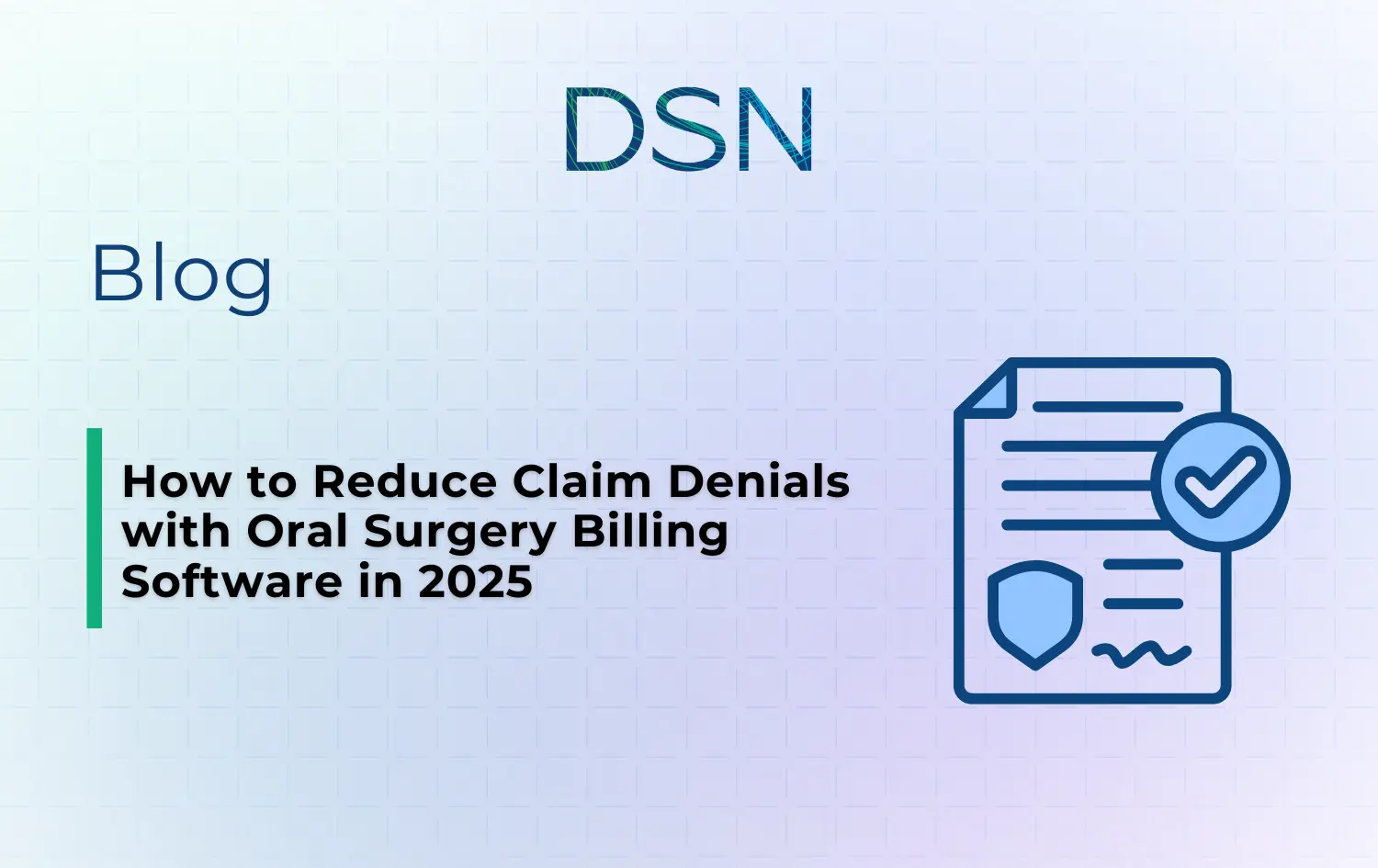Claim denials have always been a thorn in the side of oral surgery practices, and in 2025, the stakes are higher than ever. Insurers expect precise coding, complete documentation, and timely submissions. If even one piece is missing, your reimbursement is delayed—or worse, denied altogether. The good news? Learning how to reduce claim denials with oral surgery billing software can transform the way your team works and protect your bottom line.
Instead of looking at billing as an afterthought, think of it as a system. When the right tools are in place, every step—documentation, coding, attachments, eligibility checks—lines up automatically.
Why Denials Keep Happening
You know the story: a clean procedure is performed, notes are entered, but weeks later the claim comes back denied. Why? Usually, it boils down to one of five reasons:
- Documentation gaps that don’t prove medical necessity
- Coding errors, especially when procedures cross into medical insurance
- Missing attachments, like X-rays or post-op notes
- Eligibility missteps, where coverage wasn’t verified upfront
- Late filing, because staff were too busy juggling other tasks
The frustrating part is that most of these issues are preventable.
What Smart Billing Software Does Differently
Here’s where oral surgery billing software earns its keep. Instead of relying on memory or manual double-checking, the system builds guardrails around the billing process.
Think about it this way:
- Notes and codes are linked directly inside the chart, so claims match documentation.
- The software flags missing fields or mismatched codes before submission.
- Attachments are tied to the claim automatically.
- Insurance eligibility can be verified in real time.
- Deadlines are tracked so nothing falls through the cracks.
It’s not magic—it’s simply automation designed for specialty practices.
A Closer Look at DSN Billing and DSN Cloud
Many billing tools advertise efficiency, but specialty practices need more than generic claims processing. That’s where DSN Billing and DSN Cloud come in. They were built with oral surgery in mind, connecting front-office tasks, surgical notes, and billing in one system.
Instead of handling billing separately at each location, DSN Cloud centralizes everything. That means no duplicate claims, no lost information, and fewer denials caused by inconsistent processes.
One practice administrator summed it up perfectly: “The billing process has become much easier with DSN. Our claims are cleaner, and we’ve seen a noticeable drop in denials.” 【source: DSN Reviews】
That’s not just about revenue—it’s about time saved and stress reduced for the entire team.
What to Look for in 2025
If your practice is serious about reducing denials, here are the non-negotiables to demand from your billing software this year:
- Built-in cross-coding tools for dental and medical claims
- Real-time error detection that flags missing details
- Automatic attachment handling for imaging and notes
- Centralized dashboards to track claims across offices
- Reporting that highlights patterns in denials
- Cloud access so billing teams work from the same, updated data
Without these, you’re asking your team to manually plug holes in the system.
Beyond Revenue: Why This Matters
Reducing denials doesn’t just boost collections—it also makes your practice healthier. Staff avoid hours of rework, providers don’t get dragged into insurer back-and-forths, and patients appreciate accurate information about coverage. That combination builds trust and improves the overall patient experience.
Final Word
Learning how to reduce claim denials with oral surgery billing software in 2025 is really about creating structure. With DSN Billing and DSN Cloud, practices can eliminate the most common causes of denials before claims ever leave the office.
If you’d like to explore how DSN Cloud or DSN On Prem could support your practice, you can schedule a demo anytime at dsn.com/book-a-demo
